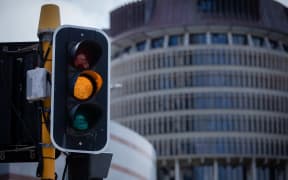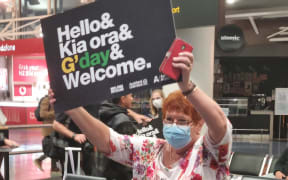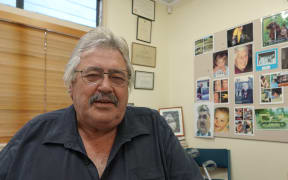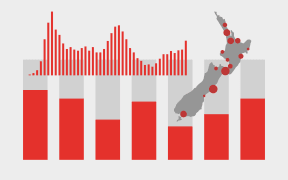Covid-19 restrictions for all of New Zealand will ease from midnight tonight but a leading epidemiologist says the country is divided in its risk.
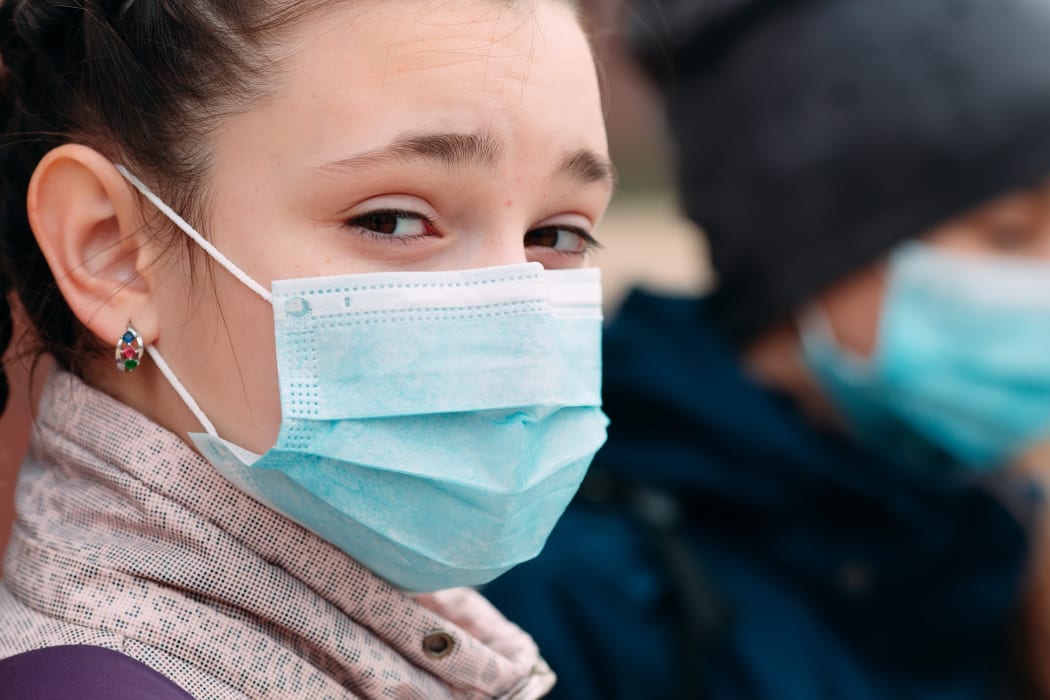
Epidemiologist professor Michael Baker says the gap in the orange setting is relaxing mask requirements for schools Photo:
From 11.59pm tonight, all of New Zealand moves into the orange traffic light setting, Covid-19 Reponse Minister Chris Hipkins announced this afternoon.
He said the change in alert levels was justified for several reasons, including an ongoing decline in cases.

Photo:
He said case numbers now sit below 10,000 new cases per day for the first time since 24 February, and that hospitalisations in Auckland were lower, with all three DHBs each reporting fewer than 100 patients for the first time since late February.
Epidemiologist professor Michael Baker told Afternoons with Jesse Mulligan the move is reasonable for Auckland, which peaked almost six weeks ago.
"But that's not the situation in the rest of New Zealand and particularly the South Island, even some DHBs in the North Island, like Northland and some of the others in the central North Island, are still seeing case numbers reported yesterday that were about 50 percent of their peak.
"So we are quite divided in terms of risk."
Under the orange setting, face masks are still required in some environments but not in schools.
Baker says with only 20 percent of younger students fully vaccinated, without masks there aren't many barriers that stop the virus circulating.
"And we do know anecdotally a lot of the way this virus is getting from one family to another is through transmission at school so this seems like a gap at the orange level."
Hipkins said schools have been provided with guidance, and they have access to public health guidance so they can consider the advice for themselves.
"Ultimately looking at a school by school basis, in some schools there is still a very strong justification for masks - but not all.
"It is very challenging for schools, it has proven to be one of the most challenging Covid-19 requirements."
People who are young, healthy, fully vaccinated and boosted should be getting out much more because the risk from the infection is much less, Baker said.
"We know now of high vaccine coverage, we've actually pushed the fatality rate from this infection now to down to less than, it's about 0.05 percent which is in a similar range now to seasonal flu - but it's only because we're highly vaccinated."
Prior to vaccination there was a fatality risk of 0.5 percent, he said.
"It's a good time to be relaxing the traffic light settings when cases and hospitalisations are declining in almost all parts of the country," Te Pūnaha Matatini modeller professor Michael Plank said.
Plank is partly funded by the Department of Prime Minister and Cabinet for research on mathematical modelling of Covid-19.
"We have successfully flattened the curve of this Omicron wave - although hospitalisations and staff absences have put intense strain on our healthcare system, things would have been even worse without our efforts to slow the spread."
While New Zealand is marking the end of its Omicron sprint, it is at the beginning of its marathon, Baker said.
"Covid-19 isn't going to go away and we are very likely to have further waves of infection as immunity wanes, people's behaviour gets back to normal, and new variants arrive," he said.
"As we move away from restrictions and mandates, we need to work on a long-term, sustainable set of mitigations. This should include vaccines, high-quality surveillance systems, a focus on clean air indoors, and financial support for people to isolate when sick."
Working from home
With a change in restrictions, Victoria University of Wellington and Umbrella Wellbeing clinical psychologist Dr Dougal Sutherland says they government will no longer encourage working from home.
But Sutherland warns there may be psychological consequences for workplaces encouraging their people to return in person.
Flexibility and agility will be key for adjusting to this new normal, he said.
"It seems likely many people will continue working from home, at least some of the time. This presents a challenge to organisations about how they create psychologically safe teams in a dispersed environment. There is also the challenge of how to support people with different levels of anxiety associated with increased human contact.
"Research shows that allowing people to work from home a few days a week is associated with better wellbeing and productivity, so allowing workers to continue a hybrid office/home set-up should be encouraged."
